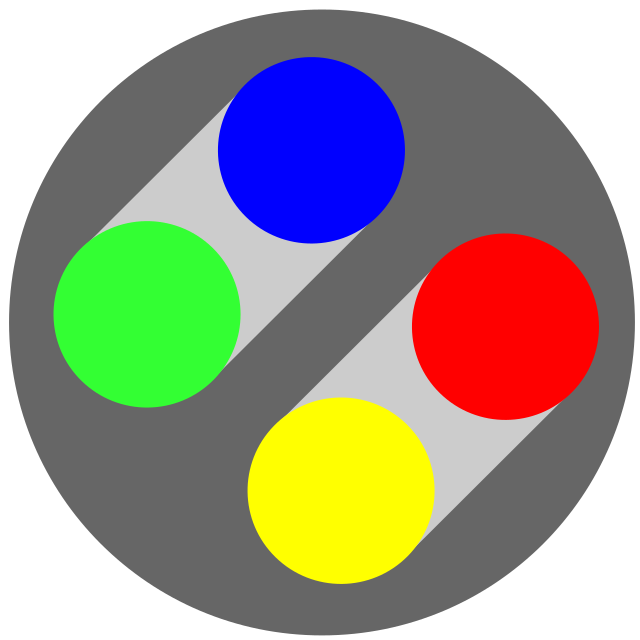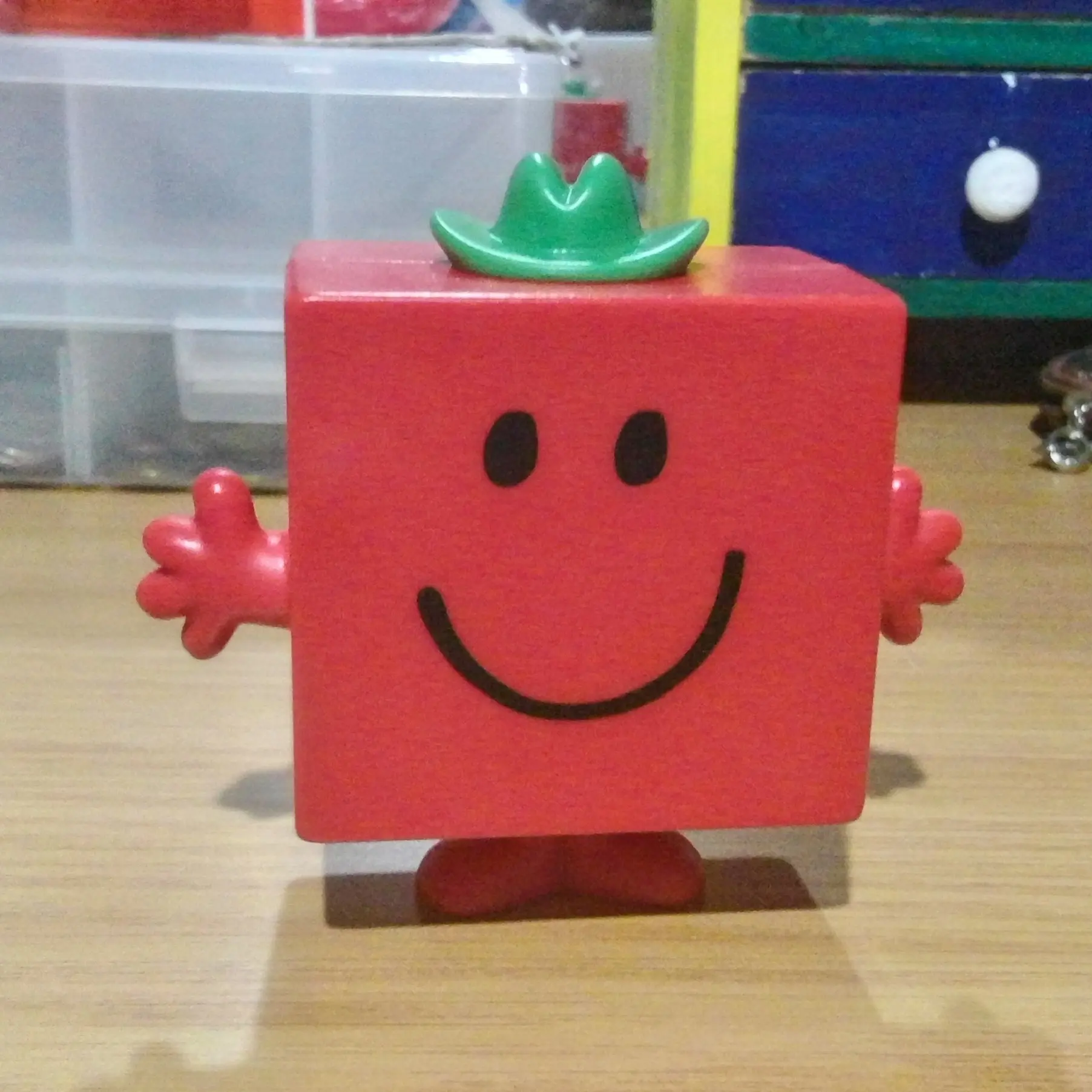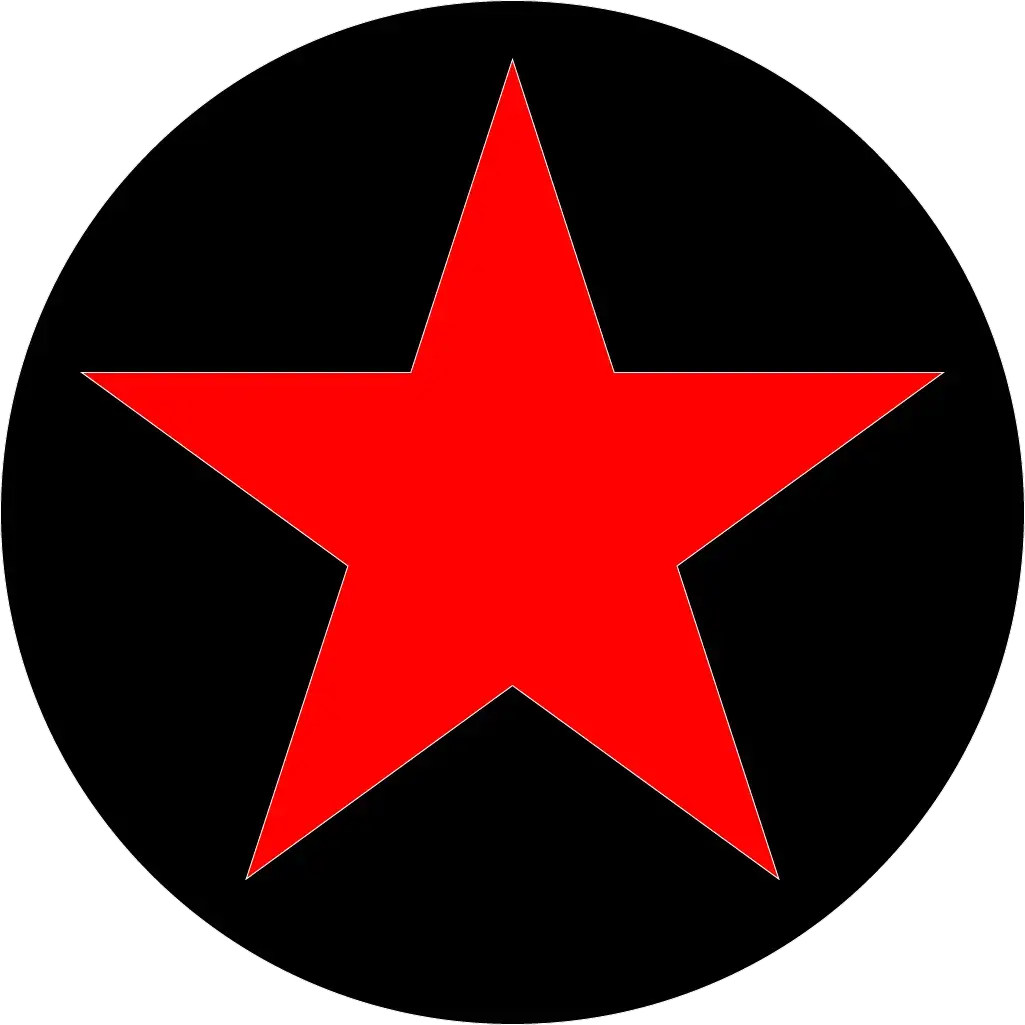For me, Google video search, Google books (Internet Archive is good, but doesn’t always have the same stuff), Adobe InDesign (but in the process of learning LaTeX), and Typewise. As for the Google stuff, I liked Whoogle a lot, but almost all their instances seem to have been blocked or shut down. Also, apologies if this is repeating an earlier post.

Just games. And I am thankful for all the open source implementations as they are almost always vastly superior to the original releases.
Thank you John Carmack for releasing the sources to your games!

same, everything i use is foss apart from games

I wanted to fully switch to Linux and FOSS for a while now but specialised software like CAD and image editing are either non existent or completely useless for professional purposes in their FOSS versions. What angers me most is that most is them could run on wine easily if the developers did some minor changes so it seems intentional.

Steam, because most my games are on there.
Discord, because most my friends and social groups are on there.

Google Maps. It sucks, and stores randomly pop in and out while you’re trying to zoom in past the McDonalds ad that’s showing despite you searching “shoe store”, but it has so much more info than the competitors that they don’t compare.

Just want to add this comparison between Google Maps and OpenStreetMap. Google Maps is definitely better in some areas and OSM is better in others.

Yeah, this is a cool discussion. Thank you.
Tried Openstreetmap? OSMAnd? Organic maps? Both of which use OSM. HERE maps (not open source)?

I’ve used organic maps, and maybe osmand? It’s good! And progress is fast. But it’s not quite there yet for me.
This conversation is making me realize that it may have been a year since I last tried it? Guess I’m due!
The user generated data on google maps is really useful though.
OSMAnd is good in many ways (and has come a long way too), but the app suffers from too many settings and too much menu diving for my taste. OrganicMaps is good because it’s like having “OSMAnd lite.” Used to be that without Google Services that there was no voice navigation, but now I’m able to use RH Voice with Organic Maps. MagicEarth is another map navigation app, but not open source.

I’ve really enjoyed using MagicEarth. I’d probably move to Organic Maps if they implemented routing for other public transport besides trains.

the FOSS options are terrible in my area

Unfortunately OSM won’t be able to compete with user reviews for example (except if we steal those from Google). Also a bunch of shops can’t be seen there, which is crucial for me to discover cheap restaurants.
But OSM’s bike routes are 10/10.

Well… Steam.

Steam

WhatsApp: I have been unable to convince my family and friends to use any other platform. Plus. in alot of countries, having WhatsApp becomes a must. Office 365: The only option I can use for work including Outlook and Teams. Google Maps: I keep trying to use OsmAnd+ but it is almost impossible to search for addresses.

I’m not off Google Maps either, but the closest to replacing it for me is Organic Maps, FWIW.

Magic earth has been good for directions, ime.

I just grabbed it. The dash cam features might possibly be useful on a bike (?). But I tried and tried and couldn’t find the magic zoom level for it to show me the name of the street I’m on, got frustrated, and uninstalled.

Very fair. I’ve noticed that google maps really nails the zoom level when you slow down and speed up, to show you the right amoynt of information, whereas Magic Earth doesn’t. I’ll be zoomed in on the motorway at 120 and later zoomed out in a city centre at 30, those two are incompatible.

i dream of the death of whatsapp so we can finally move to something better, anything really, my standards are on the floor.
ill take telegram? discord?? smoke signals???
can some kind hardworking hacker collective kill it or something? please??

tbf discord is worse than whatsapp

whatsapp doesn’t even have a decent app for PC…

Signal does, by the way.

ah ok, good to know

What’s wrong with the Microsoft Store app?

I keep getting logged out, and have to scan the QR Code with my phone every few days.

in alot of countries, having WhatsApp becomes a must.
Why is this? I hear this a lot, but I don’t understand

In some countries, government employees themselves use WhatsApp to communicate on their work phones. You have a query? Schedule an in-person visit in 6 weeks, or fire up WhatsApp, your choice. Fortunately some also use email, but WhatsApp still tends to be quicker.
It gets slightly worse when you’re looking for a job, and the only way to get hired, is to talk to someone through WhatsApp. Don’t want to? No job for you; next!

Yeah, WhatsApp is amlove hate relationship for me.
It’s seriously the best app out there, it just works, works nice and intuitive, has a web version (holy crap can’t go without) and almost everyone is on there.
I’d love a Foss federated solution, but good luck with that if no one uses it

At least here in Germany it is like that. if you got a new number or whatever you are 99,9% certain that number is on WhatsApp it’s inevitable its the main source for chatting for everyone. So if you’d want to switch platforms youd have to convince a lot of people and most would not be ready to do that since why bother when you can just use WhatsApp?

As much as I try to encourage alternatives, most people where I’m from use WhatsApp for everything these days and has been that way for the last ~5 years. I might get about 10 SMS messages a year but possibly thousands of WhatsApp messages.

Can’t speak for any country but my own (Brazil)
The reason WhatsApp is such a thing here is an interesting little historical path.
See, texting never really took off here in Brazil. Because phone service providers would charge per individual message. And while the charge was like 5 cents per message, that shit builds up. So unless you’re rich… You won’t be texting.
So when smartphones, and with them, data plans (that offered very little data, around 4 gigs is the average nowadays, it was a few megs back then) came around, internet-based messaging services became our texting. Because if you have, idk, 512 megs of data in your plan, that’s not a lot but it is more than enough for messaging over an app.
WhatsApp was the one that got popular, no idea why.
It was popular with the youths™ first in the early 10s, then families hopped on, dragged in by their young-adult kids no doubt, and then… Everything! Because once the Boomers had learned how to use this one app, every business under the sun realised it could serve their purposes as well. And eventually… So did the government.
You want to order pizza? WhatsApp. Want to contact a government agency? WhatsApp. Want to schedule a doctor’s appointment? WhatsApp.
Now, I got my friends and family on Telegram, largely because Telegram has nicer features (still closed source though grumble grumble) but I still need WhatsApp for work. It’s how I talk to everyone: The team, the boss, the contacts, etc.

I don’t understand why we spend so much time praising proprietary software in these communities.
As to your question, I have a separate Windows machine for gaming, but that’s it. I keep one foot in the free world and one in the proprietary. As for productivity tools I can’t think of a proprietary tool I “can’t quit” or that I would pick in favor of a free tool.
Fans of proprietary software have this weird belief that free software users choose inferior tools for purist or idealist reasons. This is offensively ignorant. No one chooses bad tools on purpose; we just consider freedom to be part of the criteria of a good tool.

This. Freedom is part of the quality of a program.

A tool with fewer features that is harder to use is by definition an inferior tool.
we just consider freedom to be part of the criteria of a good tool.
You just described choosing an inferior tool for ideological reasons.

A tool with fewer features that is harder to use is by definition an inferior tool.
That’s only your opinion, not an objective truth, and I only partially agree with it. Having the most features is not as important as having just the right set of features, and there are anti-features to consider as well. Feature creep can actually impact the usability of a tool, so these two criteria are sometimes in contradiction.
Ease of use is subjective and depends on the user, because users’ needs, ability, tastes, and concerns differ. Of course, I don’t think anyone deliberately chooses a tool because it is hard to use.
I don’t agree that freeness is purely an ideological concern. I don’t think a tool that works against me, or imposes arbitrary restrictions on me is a good tool by any measure. A good tool doesn’t enshittify, or spy on its user, or refuse to work for arbitrary reasons. If a tool doesn’t work and you are legally not allowed to fix it (as in the printer which inspired the movement in the 1980s), it’s not a good tool. If a tool punishes you for something you didn’t even do (as BitKeeper did to the Linux developers) it’s not a good tool, even if it has the right features.
I don’t tell you that your opinion is wrong, only that I don’t agree with it. We are told our concerns are invalid and don’t matter.

That sounds like an idealist reason to me lol

Most of the times -for me anyway- not only are the tools free (as in freedom) and free (as in beer) but also simply vastly superior to paid alternatives. I never get why people pay and then put up with shit, or use some SaaS platform where they are the product and get spied on and still put up with so much shit that they would be double better off by switching to something open

Google Earth and Google Street View.
Even after all these years of using them, I’m still amazed.

What proprierary Javascript is needed for core functionality? 😅


Any reason you prefer noscript to unlock Origin?

I find it easy to use and use both, Noscript for Javascript (all opt-in), UBlock for adblock (badness enumeration) and “cookie autodelete” (on mobile, for opt-in keeping cookies and deleting the rest)
TotalCommander.
I was using Norton Commander in DOS in the 90s, then WindowsCommander in Windows 3, which was renamed TotalCommander. Using this for maybe 35 years. I don’t know how to use Windows gui to copy/paste or explore multiple folders etc.

Krusader and Double Commander immediately come to mind.

Steam

Solidworks - A reliable FOSS 3D CAD package would be amazing… Parametric Blender? Photoshop/Illustrator - I know how to do 50% of what I need to in GIMP/Inkscape, but I lean on Adobe usually!

FreeCAD is the best FOSS program I know for solid modeling. Librecad works for 2D.

Man, I tried to learn FreeCAD, but coming from the Inventor/Solidworks paradigm it was hard.

I used to use Solidworks and NX some. I think there are similarities. That is sketch based. I admit though, not really learned FreeCAD either. On my list some day.

There is also ondsel, which is basically freecad with some polish maybe. It looks the same to me. But one day when they solve the topology renaming thing and when they have an interface that’s not openly hostile I’d love to try it

I would agree that FreeCAD is the best, but it’s not slick and doesn’t feel particularly robust. Don’t get me wrong, I have no rose tinted glasses on when it comes to Solidworks, but it’s generally very usable and very powerful.

Actually Solidworks is consider low to mid market. NX and whatever PTC calls their high end now are the main stream CAD systems as far as I know.

I worked with Creo for years, and ProE before that. I still have nightmares about the cascading unresolved reference screens. I’ve never used NX, but my understanding is it is AAA, though not super user friendly by default. I’ve pretty much exclusively used Solidworks for over a decade now, and I have to say that it’s generally pretty well behaved, and I’ve never really found I couldn’t do what I wanted to in it. Thus it has become my crutch.

Nice thing about Solidworks is I think is used the ACIS kernel. Means it is directly compatible with a lot of other software.

Solvespace is a FLOSS light weight 3D CAD alternative. Although it lacks the advanced features of Solidworks works really great for most of my 3d designs.

Discord has friends locked in. IRCcloud is so convenient. Tap to pay app is too useful. The app that controls my heat and AC is going to be a big project to replace. Spotify has family locked in. All the garbage running on my car would be nearly impossible to change.
GBoard is one I’ve tried to ditch a few times and end up coming back to. :(
Tried AnySoft keyboard?
I’ve never understood the appeal of Spotify; I’m used to owning CDs, FLAC, or mp3 albums.

I’ve never understood the appeal of Spotify
- Tap search
- Select artist/album/song
- Play anywhere instantly
- Low monthly cost, no need to buy songs/albums
I also like having physical copies/my own files organized for my home server. But to not even understand why people use Spotify…?
I’m just old I guess, and rather set in my ways. I remember not being able to search their catalog to see what they had or didn’t have without signing up, but that was quite a long time ago. I think Spotify may short change its artists, but at the same time I’m guessing it’s probably a lot cheaper than buying albums.
Can’t you also do 1,2,&3 with YouTube as well?

Youtube doesn’t let you listen to videos if you navigate away from the app or lock your screen, making it functionally useless as a mobile music player. You have to pay for YT music to be able to do that.
And I agree with you about not using spotify, but again, there are certainly advantages to it. The pros just don’t outweigh the cons/match our values.
I think you can do that with Invidious or FreeTube…? NewPipe will let you do that, I’m pretty sure.

Sure but they are not as effortless/not as feature rich as spotify and can be tricky to run on iOS. Google et al are also actively trying to break those projects these days. I say this as a daily freetube user.

I’ll give it another try. It’s been a year or more.
I could switch away from Spotify but family wouldn’t like it and we share a plan.

Convenient. Haven’t run into music it doesn’t have. I didn’t use it for years but a few months ago got roped in and now I’m stuck lol

Discord, Steam and Obsidian.

I’m really liking Logseq. I started on it instead of Obsidian since Logseq is FOSS. I understand it’s not too hard to switch over since they both use markdown files, granted some scripts need to be run to convert markdown differences between the two.
Logseq’s business model is to charge $5/mo for syncing on their (fully encrypted with a private key) server, but you can use a FOSS syncing solution (or a property one) if you prefer. I pay to support the project and to simplify sync on work devices I don’t have administrator rights on (so most other sync solutions wouldn’t work well.)

I love logseq conceptually but constantly use org-roam because logseq is prone to performance breakdowns on my hardware

I tried Logseq, but it was slower than Obsidian and it’s section/block oriented and I want it to be note oriented (Obsidian). It is a decent alternative tho.

I started on it instead of Obsidian
This is the way. I started on Obsidian, and Logseq is painful in comparison. It’s a good product, but I got accustomed to too many nice conveniences over the past couple of years.

Zettlr is trying, it’s really trying, but it has less than half the features

Google maps, venmo, and lyft are my last real holdouts.
I tried Osmand~ but it like using your dads Garmin from 2005. The last two have been hard to find good alternatives to. Would be nice if signal payments were in a stable coin instead of a shitcoin.

OsmAnd is a maps app, not a navigation app

Serious question - aren’t maps for navigation? I’ve heard this rhetoric a few times and I just… don’t entirely follow the logic. Like I do to an extent, insofar as Open Street Map data is for information like rivers, buildings, updating cell data (used to do updates here and there in my city.)
But to me all of these maps, and initially starting out, maps are for… navigating?
Idk lol, not judging, mostly just confused at the intention. “We plot out maps! But dare to try and follow it to get where you are going at your own peril.”

Maps are for documenting the location of things in the real world relative to each other. It could be anything, like roads and buildings, or rivers and bodies of water, or electrical lines.
Then there is all the information that is added to all those objects; adding names to the roads, buildings having an addtess and what type of building they are, the direction a river is flowing and how many rivers flow into or out if a lake.
All of that is just information, where an what things are, it doesn’t actually do anything. That is a map.
Navigation software takes the information about the roads and how they are connected together along with their names and combines it with addresses to show you how to get from one address to another.
You could also have software that simulates the ecological effects of rerouting a river from a lake, or damming a river.
You could take data from a map to show you all the power lines that are near trees that will need to be trimmed and give estimates to your employer on how many people to hire for tree trimming, and then combine that with a map of buildings to show how many customers would be without power if a tree branch triggers a circuit to open.
Navigation is just one part of what a map could be used for, and probably one of the only parts that most people would use a map for.
OpenStreetMap started out just being a map of streets, hence the name, but it has grown to be this massive collection of information. Then there is all of tools that decide what to do with the information. OsmAnd is a good tool for simply displaying the data. It can provide navigation but it’s not the best.

Consider a map of all cell towers. Or consider a map of all power substations. Or a map of all dams.
None of those.maps are useful for navigating.
Likewise, good luck using a navigation app (like Google Maps) to produce the above maps. They’re different tools for different jobs.

Uh no. I have been using it for navigation for the past 5 years, probably even longer. It is hit and miss in some areas but it works OK.

Are there good FOSS navigation apps?

organic maps is built on open maps and is FOSS. Takes some getting used to though. The time estimates aren’t accurate (it doesn’t account for traffic) so always add time to the estimate, and you can’t really search for things by name you generally need to input addresses (except for maybe your airport. This also varies based on where you live because folks might be updating it more for you locally).
Basically it’s a solid option but not good enough for me to ditch Apple maps completely (I trust apple slightly more than gmaps but not by a large margin lol).

Is Organic Maps better at navigation than OsmAnd?

Haven’t tried OsmAnd so I can’t answer that. Sorry!

I’ve been using Organic Maps for my navigation. It uses the same OpenStreetMap data, but navigation (as well as searching for e.g. “food” as opposed to a specific place) works flawlessly and routing happens offline.

Seems ok, but seems to struggle w/ long distances. Works better than osmand tho, thanks

Discord. As a chat platform, it is by far the most user-friendly one out there despite its proprietary nature and lack of respect for privacy.

Messaging platforms are so hard to replace since there’s a social traction aspect. I can pick out the most secure and private messaging service, and then have no one to message on it


